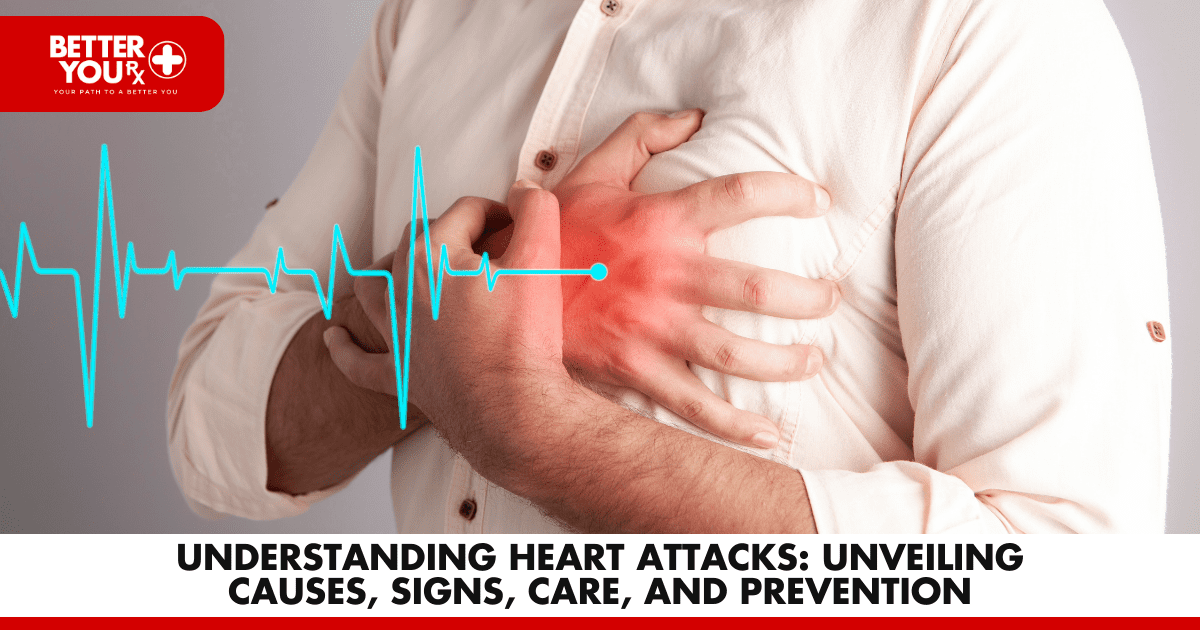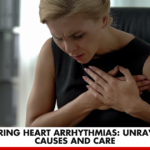The mention of a heart attack often conjures up images of intense chest pain, but the reality is more nuanced. Not all chest discomfort translates to a heart attack, and diverse indicators warrant attention. Delving into the intricacies of heart attacks, from their causes to prevention, is essential for grasping their gravity and ensuring timely intervention.
Unraveling the Heart Attack Mechanism The heart’s sustenance hinges on oxygen, a supply delivered by blood flow. A heart attack, medically known as a myocardial infarction, transpires when blood flow to the heart is substantially hindered or fully obstructed. This deprivation triggers damage or demise of the heart muscle. Swift medical attention is imperative during a heart attack, as it’s a life-threatening emergency.
Exploring Heart Attack Triggers Atherosclerosis often underpins heart attacks. This condition manifests when coronary arteries, which furnish the heart, narrow and harden due to plaque buildup, composed of cholesterol, fat, and other substances. This accumulation impedes blood flow through the arteries. When a blood clot forms, the flow can be completely halted, culminating in a heart attack.
The journey of atherosclerosis’s genesis is still under investigation, although it might commence with harm to the artery’s inner lining. This harm may arise from factors such as smoking, diabetes, elevated cholesterol, triglyceride levels, and hypertension.
Heart Attack Categories A heart attack is a significant health event, requiring prompt intervention. Two primary types exist, distinguished by electrocardiogram (ECG or EKG) assessments:
- ST-elevated myocardial infarction (STEMI): This severe variant arises from total coronary artery blockage and is often dubbed a massive heart attack. Emergency care is crucial due to the extensive blockage’s critical impact.
- Non-ST-elevated myocardial infarction (NSTEMI): Here, a partial artery blockage diminishes blood flow, leading to diminished function.
Deciphering Heart Attack Signs Sensing the symptoms of a heart attack is vital, but self-diagnosis is risky. Rather than self-assessing, promptly seek medical assistance or call 911. Indications of a heart attack encompass:
- Persistent or intermittent chest pressure, fullness, or discomfort
- Pain or unease in the arms, neck, jaw, back, or stomach
- Breathlessness
- Cold sweat
- Nausea or vomiting
- Dizziness
- Fainting
- Fatigue
- Indigestion
- Heart palpitations
Notably, symptoms can differ between genders and might even manifest as “silent heart attacks,” characterized by mild or mistaken symptoms. Women might experience subtler signs such as discomfort in the lower chest or upper abdomen, fainting, indigestion, and fatigue. Silent heart attacks might evade immediate recognition until a doctor’s visit reveals prior heart damage through an EKG.
Unraveling Heart Attack Duration A heart attack’s span can range from 30 minutes to longer. Warning signs could appear before the actual attack, either suddenly or hours, days, or weeks before. Such early cues, or pre-heart attack symptoms, may encompass angina (chest pain or pressure triggered by exertion).
Diagnosing a Heart Attack Several tests can diagnose a heart attack:
- EKG: This assesses electrical heart activity and detects damage.
- Blood test: It identifies cardiac enzymes released by damaged heart tissue.
- Coronary angiography: This procedure employs dyes and special X-rays to inspect artery interiors for blockages.
Navigating Heart Attack Management Prompt intervention is pivotal for a heart attack’s prognosis. Swift action can unblock arteries, preventing or minimizing heart muscle damage. Thus, seeking emergency medical help at symptom onset is vital. Heart attack treatments include medications, surgery, and lifestyle changes:
Medications encompass aspirin, antiplatelet agents, “clot-busting” drugs, blood thinners, vasodilators, beta-blockers, ACE inhibitors, and statins. Surgical alternatives involve procedures like percutaneous coronary intervention (PCI), coronary angioplasty with stent, coronary artery bypass graft (CABG), or implantable devices. Heart-Healthy Living: Preventing Heart Attacks Mitigating heart attack risk necessitates cultivating heart-friendly habits. Maintaining a healthy weight, exercising, consuming nutritious foods, managing stress, quitting smoking, and moderating alcohol consumption are all beneficial. Staying on top of doctor appointments and addressing heart-related conditions, like diabetes and high blood pressure, further minimize risk.
Decoding Heart-Related Misconceptions Certain issues, though worrisome, aren’t identical to heart attacks:
- Cardiac arrest: Unlike a heart attack, sudden cardiac arrest arises from heart malfunction and abrupt cessation. Heart attack pertains to blocked blood flow.
- Stroke: While akin to heart attack symptoms, strokes involve brain artery clogs or ruptures, inducing brain cell death.
- Heartburn: Disparate from heart attacks, heartburn originates from stomach acid reflux, often mimicking chest pain.
In essence, heart attacks can be deadly, but timely interventions have enhanced survival rates. Should heart attack signs emerge, seek immediate medical assistance or call 911 without delay. Procrastination holds no place in heart attack care.
Experience a revolution in your healthcare journey with Better You Rx! Are you tired of the endless search for reliable Prescription and Non-Prescription Pills as well as effective Weight-Loss Medications online? Your search ends here! Embrace a seamless online pharmacy encounter like never before. Better You Rx stands as your ultimate pharmacy partner, meticulously handpicking the finest pharmacies to collaborate with, ensuring not only a vast array of premium products but also an unmatched service quality. Say farewell to the daunting quest for the perfect online pharmacy—say hello to Better You Rx, your exclusive destination catering to all your health and wellness requisites.
Connect with us effortlessly through a multitude of channels, including our user-friendly website: https://betteryourx.com/. Have questions or concerns? Dial 1-888-594-3708 to converse with us directly or drop us an email at info@betteryourx.com. Our operational hours extend to serve you zealously, Monday through Friday from 9:00 to 20:00, and on Saturdays from 11:00 to 15:00. Remarkably, we are at your service throughout the year, even on holidays, dedicated to delivering you the finest online medicinal solutions. Elevate your well-being with Better You Rx today!



